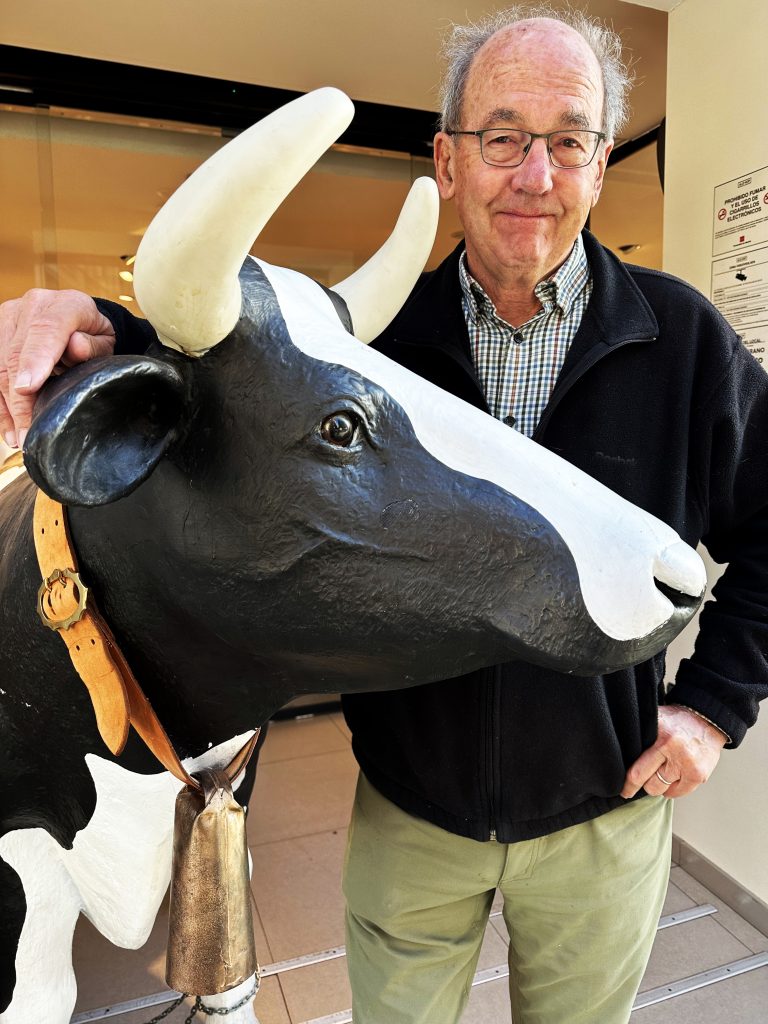
April 5, 2023 By Michael Weymouth
Those of us who have grown up in the country have most likely seen farmers spreading cow manure on their pastures with mechanized manure spreaders. In doing so, these farmers are part of a closed loop system: cow eats hay, cow waste helps to grow more hay. More to the point, consumers are able to buy milk knowing that they are a constructive part of this loop and not part of a chain of events that includes polluting the environment, as we are, for example, when we pump gas at the gas station, where our demand for fuel leads to the creation of carbon in the atmosphere.
Unfortunately this neat and tidy closed loop system does not work well with the large commercial farms from which we derive our other food sources. This is particularly true with the farms that use large amounts of nutrient-rich fertilizers, where runoffs pose a huge environmental threat, the result of which are environmentally harmful algae blooms in our lakes, ponds and rivers and even in the world’s oceans, where oxygen-depleted dead zones are being created.
In a recent New Yorker article, Elizabeth Kolbert expands on how these farms have failed to handle this problem, and further how to figure out ways to apply a closed loop system to all aspects of our capitalist society that produce waste.
The operative word here is extranalities. Webster defines extranalities as a side effect or consequence of an industrial or commercial activity that affects other parties without this being reflected in the cost of the goods or services involved.
In Kolbert’s view this cost should be borne by those who create the waste, i.e. cleaning it up should be part of the business equation, even if consumers end up paying more at the supermarket. She contends this is a price we should all be willing to pay for the long-term health of our planet.
In 2016, the World Bank adopted a policy called the Environmental and Social Framework (ESF) with the goal of linking the cost of dealing with extranalities to loans they make, stating “we aim to ensure that the people and the environment are protected from potential adverse impacts. We do this through policies that identify, avoid, and minimize harm to people and the environment.” In other words, if a loan is made to a commercial enterprise in the Czech Republic, the World Bank mandates that the loan recipient has to include the cost of cleaning up the mess it makes as part of the loan.
So what does this all have to do with child care?
The Biden administration is also pushing hard in this area, although with a slightly different twist by requiring that the new chip manufacturing facilities being proposed in Arizona and Ohio include the cost of day care in their plans. The issue is not as clearcut as accounting for environmental pollution, but nevertheless it links a solution to a national problem: day care that allows more women to participate in the workforce. No doubt the cost of doing so would be reflected in the cost of the chips being manufactured and ultimately to the consumer, but again, it’s a price worth paying.
A day care plan such as the one Biden is proposing would also constitute a highly attractive benefit for workers and set an example for how all companies should structure their approach to daycare.
As a nation we have a long way to go in this regard. In our country, the richest 1 percent owns 40 percent of the wealth, while a larger share of working-age people live in poverty than in any other nation. The OECD (Organization for Economic Cooperation and Development,) an international organization of democratic countries with market-based economies ranks America dead last out of the 71 country members in terms of worker benefits.
So next time you drive by a cow pasture, tip your hat to the cows for the example they set. And next time you vote, vote for the candidate with the best plan for providing affordable daycare to millions of working mothers.

